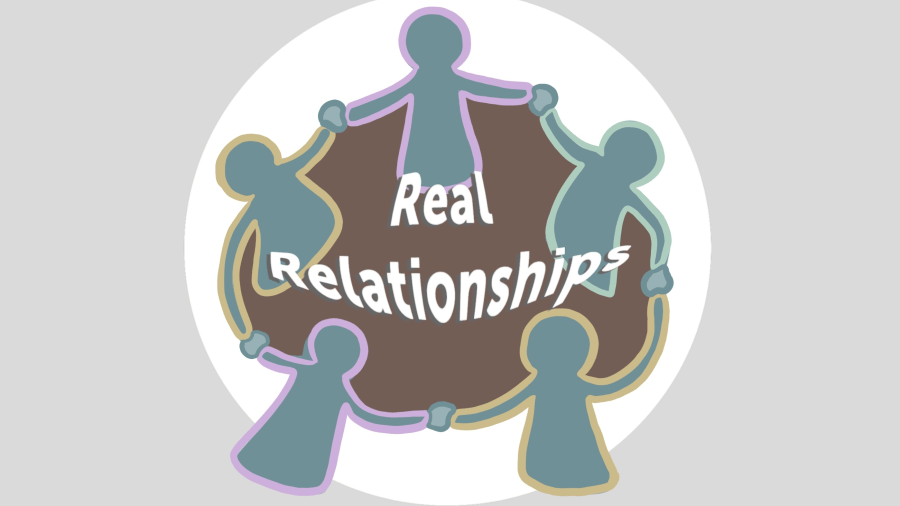What to Look For in an Internship
The benefits of an internship are multifaceted—not just a line on your resume! Among other advantages they provide, internships give you the opportunity to test-drive a career, build a network, and prove your skill to a company. We’ve already shared that 65% employers want students with more than one internship; but how do you tell what makes an internship valuable? Whether you’re a student weighing options or a business wondering how best to set up appealing positions, here are a few hallmarks of great internships.
For this discussion, we’re pulling in the expertise of not only our teammates who have successfully landed internships outside of the CATLab, but also Rachel Winslow, director and founder of Westmont Downtown and its Semester in Social Entrepreneurship. In the last few years, she has helped pair up Westmont students with over 120 internships in the Santa Barbara area, so she has an impressively well-researched understanding of what works and what doesn’t.
Westmont Downtown’s match-making process for internships is known for the way it tailors opportunities to each student’s interests and abilities. “The term we often throw around is bespoke,” said Rachel Winslow. “We fit the internship to the student.” What’s more, the process isn’t limited to whatever job postings happen to be available—Westmont Downtown actively creates new positions to meet its students’ needs as specifically as possible. In fact, Dr. Winslow said that 90% of the placements for Downtown students didn’t exist before.
While we don’t all have the connections required to create our own internships, we can certainly take lessons from the Downtown program in what to look for.
Real Relationships
A top priority for Dr. Winslow is finding good supervisors for the students in her program. The internship journey starts with looking at a student’s set of skills and style of working, but the crucial step is matching student to supervisor. Dr. Winslow shared that although students often want to choose an organization based on its mission, Westmont Downtown tends to prioritize “supervisor over mission.” As important as mission is, she said,
“A good supervisor is one of the best resources and assets you can have in your life.”
Our developer Kristen backed up this conclusion with her own experience. When asked what she most appreciated about interning at the Thornhill Companies, she responded that it was getting to work with her boss, Avery. “She’s super open to new ideas and she opens up the floor,” said Kristen, “and she’s alright with you making mistakes because she does the same thing. I really enjoy working under her lead.”
Although the supervisor can make or break the internship, other relationships are important as well. Last summer, our senior developer Sam Reep shared that he valued the connections he made while interning at AppFolio. “They’re all very supportive and they want each other to do well,” he said. “It’s really encouraging, and I think it’ll be great to have that connection with them in the future.”
Relationships are important for interns to feel fulfilled, and then they can be helpful even after the internship is over. Dr. Winslow noted that “community connections are crucial for students to succeed after school.” Therefore, a good internship supports genuine connections and relationships. “When you’ve only dealt with professors and academics,” said Dr. Winslow, “it’s really hard to navigate the work world, where they have very different expectations. That becomes increasingly easier the more that students are exposed to it.”
Substantial Projects
Another element of a good internship is when students are trusted to work on real projects, not just given busywork. Sure, interns can be used to free up the workload by taking on menial tasks—but they can also be incubators for innovation. The companies we talked to last summer said that their interns brought new energy to the company culture. Internships increase benefits for both intern and employer when they actively involve the intern in key projects.
For the intern, a big win is the sense of independence and competence. “Any time students are engaged in big projects that require them to populate their own goals and objectives, it completely changes the kinds of learners that they are,” shared Dr. Winslow. For the company, interns can bring improvements by imagining better ways of doing things even as they draw on the wisdom of seasoned employees through conversation.
Having a company’s trust and respect allows interns to contribute real value to the team. Kristen shared despite her status as an intern and the fact that she only had a year of experience in Salesforce, she was trusted to instruct people twice her own age. She said it was “challenging and daunting sometimes,” but was encouraged by the fact that her coworkers trusted her to “find efficient ways to solve their hurt points and make their experience of the company better.” Internships prosper, then, when interns and employees benefit mutually from each other.
In order to achieve this depth of involvement, however, you may need to dedicate a significant amount of time. The time factor is why Westmont Downtown internships are a huge focus of the students’ semester: students commit between 20 and 24 hours a week to their chosen internship. Rachel Winslow explains: “You get a real different internship with 8 hours than with 24 hours a week, because your boss looks at you and thinks, ‘Oh, she’s here all the time. I can actually give her things to do, and I know she’s going to show up.’”
Big-Picture Benefits
A good internship should be about building up the student, not just finding what the business can get out of it. To attract the best talent, businesses should pay attention to what kinds of experience/training prospective interns are looking for. Students, meanwhile, should pay attention to how a given internship plays into their larger portfolio: What skills does it strengthen? How does it round out your experience, enhance your education, and provide real-world experience?
Some other considerations have to do with how your personality fits with a company. For example, would you be more comfortable in a small business, or are you hoping to get a taste of working for a large employer? Do you want a job that’s more independent or directed? Internships are a great way to build independence and confidence, but if you know you’re not really a self-starter or you’re worried about figuring out your first internship, it’s okay to look for opportunities where your tasks will be communicated clearly rather than a place where you’re expected to manage yourself.
Another thing our developers brought up was the different advantages of established versus emerging companies. Ben and Kristen have enjoyed the freedom that comes with pioneering Thornhill’s instance of Salesforce. Sam, on the other hand, saw the benefits of working in an “established company with an emphasis on best practices, with professionals who have been working in the field for years, for most of their career.” Keep in mind, however, it’s not a simple dichotomy since newer companies often have experienced employees and likewise, older companies can still be open to innovation.
These are simply a few factors to examine when trying to figure out what kind of internship will yield the most fruitful experience. There is certainly no one-size-fits-all model for the perfect internship, but if you pay attention to the people you want to work with, the projects you’ll be trusted with, and the overall opportunity, you’ll be well on your way to choosing a fantastic internship.
Interested in more insights from the CATLab? Follow us on social media!


